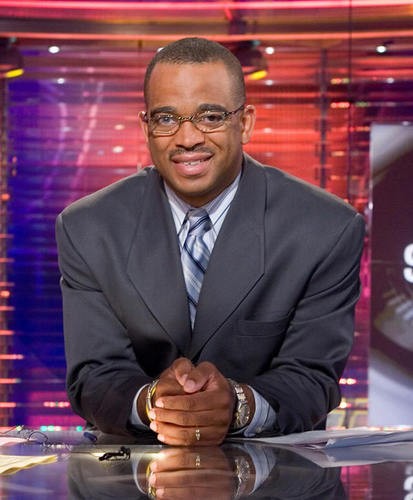Stuart Scott and (Not) Responding to Internet Critics
January 8, 2015Like many people I was saddened to hear about Stuart Scott’s death on Sunday. As a lifelong sports guy (watching and rooting at least, if not playing particularly well), I’ve “known” the ESPN anchor for years. His catch phrases, his professionalism, and his general likeability made him as cool as the other side of the pillow.
Until I went back and reread portions of the big ESPN book, I didn’t know Scott received so much criticism for style. I’m hardly an urban hip-hop kid, but I always found his street-smart style to be genuine and entertaining. Apparently, some people hated it and sent in emails or wrote online about they found his schtick unprofessional, inauthentic, or just plain annoying. Scott’s approach to this kind of internet criticism was refreshing:
I’ve read two blogs in my life. I’m not a big Internet guy. I was talking to a colleague of mine who works here and he said, “Man, I get on the Internet, I see all this stuff written about me and I’m firing off e-mails…” And I’m like, “Why? Why are you firing off e-mails?” I’m not trying to be cool; I just think that if there are people who say I’m trying to do this [act black], and I’m trying to do that, they can believe it if they want. (535)
Of course, there are times to respond to our critics, especially if they know us and really care for us. The internet, at its best, can be an easily accessible marketplace of ideas. But it can also be a butcher’s block. Anyone with any kind of public presence–and that’s almost everyone nowadays–must learn how to process the incessant punditry of online critics.
Again, here he is Scott:
I can’t be that concerned with how I’m perceived. I care about how my mother and father think about me and how my friends and how my loved ones think about me. I care about how my ex-wife thinks about me; she and I are still good friends and we do a good job raising our kids. But it doesn’t matter to me what people who are writing a blog on the Internet think. I can’t think about that.
Being a father. That’s it. That’s the answer. That’s my answer. I’m convinced of that. I remember there was a day—my oldest daughter, who is fourteen now, but when she was about two or three, there was a show called Gullah Gullah Island, a Disney show, that was her favorite TV show. I was doing the late-night SportsCenter that aired all morning long. So there was one morning and I’d done the show the night before, and I got up and I said, “Taylor, do you want to watch Daddy on TV?” And she said—and it’s not just what she said but how she said it—“No, I want to watch Gullah Gullah Island.” And I remembered thinking that day, if it’s not a big deal to hear, and she was my life, then it can’t be that big of a deal. (641-642)
Later in the book, Scott talks about his first bout with cancer and how it put the opinions of others into perspective:
I had cancer last year. I had appendicular cancer, which is very, very, very rare, like extremely rare. I had appendicitis. It didn’t rupture. It was inflamed, it go taken out—I was in Pittsburgh for the Monday night game. It was malignant.
So three or four days later I had surgery to remove, like, anything close. I got a big scar. They took apart my colon, anything. I did six months’ chemotherapy. Now, after they finished the surgery, they didn’t find any more cancer, but they said to do chemo anyway. Every six months I have to have a CT scan. Now, I’ve been clean. I worry, what if this comes back and I’ve go to live every day? So juxtapose that up against what somebody says. (642-643)
As a Christians–and I don’t know anything about Scott’s religious beliefs or lack thereof–we know that living for God’s pleasure and living in God’s pleasure are even better and more freeing than living for our kids. And yet, Scott is definitely on to something. Criticism hurts. Unfair attacks on our character are, well, no fair. But let’s not make it worse by our pride. Most folks, even those closest to us, aren’t fixated on us–either to applaud us or condemn us. And those who are have their own problems. Why get upset when people we don’t know and have never met think we’re dirty rotten scoundrels? The internet critic fires his missive and goes back to whatever life he was living before. Don’t let him (or her) have a place in your life he doesn’t deserve.
This content was originally published on The Gospel Coalition
